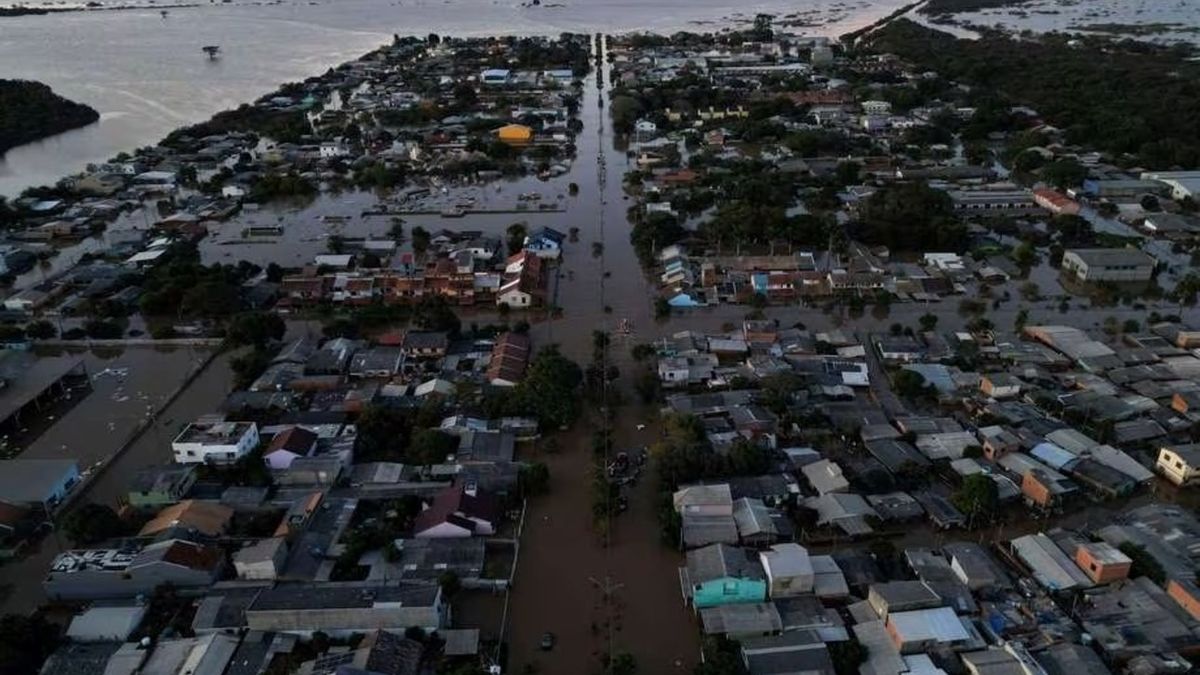Uruguay is exporting energy to Brazil during some moments of the day after the serious floods that affect the state of Rio Grande do Sul They will damage at least four hydraulic plants, three substations and 24 transmission lines.
The situation in southern Brazil remains critical, and the consequences will likely last for months as rivers and waterways continue to experience flooding. In Rio Grande do Sul, the most affected state, the damage covers all types of areas: from social and infrastructure, to the production of pork, rice and, now, energy.
For this last point, the government of the northern country requested Uruguay electrical energy during some moments of the day to supply the internal consumption. The exchanges began in the first days of May, when Brazil required energy in emergency mode to guarantee supply in the south of the country. According to official records, the National Administration of State Electrical Power Plants and Transmissions (UTE) shipped engines Batlle Central to meet the order of 1.26 GWh.
Since then, Brazil continued buying Uruguayan energy and, so far this month, UTE has exported 7.5 GWh through the converter Melo-Candiota. Sales generally occur during the afternoon, as this is the time when the greatest electricity demand begins.
For its part, imports from the northern country seek to avoid overloading the Rio Grande do Sul system which, after the floods, reported four hydraulic plants—UHE Monte Claro, 14 de Julio, Jacuí and Dona Francisca—, three substations— SE Nova Santa Rita, Canoas 1 and Candelária—, 10 transformers and 24 transmission lines in a situation of unavailability due to the damage suffered. According to the latest report of the National Electrical System Operator (ONS) of Brazil, There is no forecast as to when these assets will be operational again.
Meanwhile, for this week it is expected that the export of Uruguayan energy to Brazil, while the emergency continues.
Due to the floods, Brazil will also import rice from Uruguay
Energy is not the only thing Uruguay will be exporting in the context of emergency that the south of Brazil due to the serious flooding suffered: last week, the president Luiz Inácio Lula da Silva announced to the leaders of the Congress that will send a provisional measure to allow the importation of rice from Uruguay and the rest of the countries of the Mercosur (Argentina, Paraguay and Bolivia) in order to lower the price of the product in the neighboring country.
The federal government decided to import rice in an attempt to prevent the price of grain from increasing after the rains and floods that devastated Rio Grande do Sul, a state that produces 70% of the country’s cereal.
“Today I send it to the deputy to Arthur Lira to put it to a vote. We are going to have to import rice from Bolivia, Paraguay, Uruguay, Argentina, to lower the price of rice and beans in this country, which is an essential food for the people,” Lula da Silva stated, Valor Economico reported.
The Minister of Agriculture, Carlos Favarohad anticipated, on Tuesday, that the government intended to allow the purchase of up to 1 million tons of rice to compensate for the failure of the rice harvest. Rio Grande do Sul.
In any case, and beyond this, in Uruguay There is concern among producers about how floods in the northern country and in the national territory itself could affect grain harvests. In that sense, so far 90% of the total rice area has been harvested. The remaining 10% represents some 15,000 hectares of cereal whose losses have not yet been able to be quantified.
Source: Ambito




